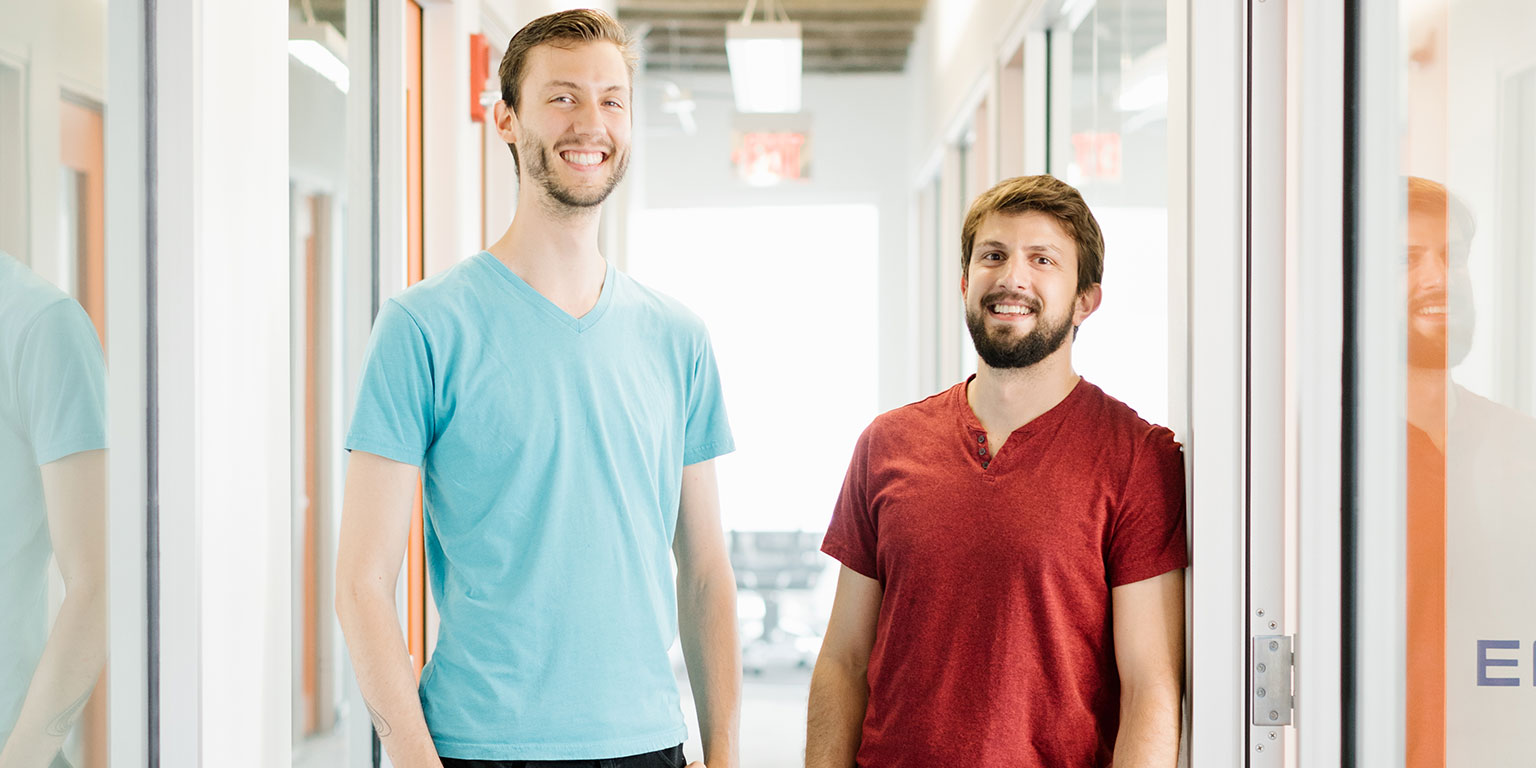By Raymond Fleischmann | Fall 2021
Photography by Anna Powell Denton
Conversation comes easily when you’re talking with Luke Jacobs (B.S. ’15, Environmental Science) and Dan Smedema (B.S. ’15, Cognitive Science). They’re affable and relaxed, quick to laugh and careful to listen, and just a few minutes into our interview the pair already feels familiar to me, as if they’re old acquaintances from high school or a bygone job. Dressed in jeans and plain t-shirts, they answer questions with an easygoing air, though the topics at hand are hardly simple.
Jacobs and Smedema are two of the three founders of Encamp, an Indianapolis-based software company. Built from the ground up — “I wrote every line of code myself until we hired our first engineer,” Smedema says — their software-as-a-service platform helps companies understand and manage environmental compliance requirements. Theirs is a service that may sound like a niche product at first, but the companies that need such software range from big-box stores to grocery chains to food and beverage companies and chemical plants.
“People have no idea how much reporting there is to be done,” Smedema says. “It’s a sector that’s almost completely invisible to the people outside of it. If a company has more than two or three forklifts, for instance, there’s enough sulfuric acid and lead in the batteries of those forklifts that it has to be reported to agencies. If you have a big parking lot, you have to sample rainwater runoff. There are things you have to file monthly, things you have to file yearly, things you have to report when certain events happen. It’s a much larger space than most people realize.”






